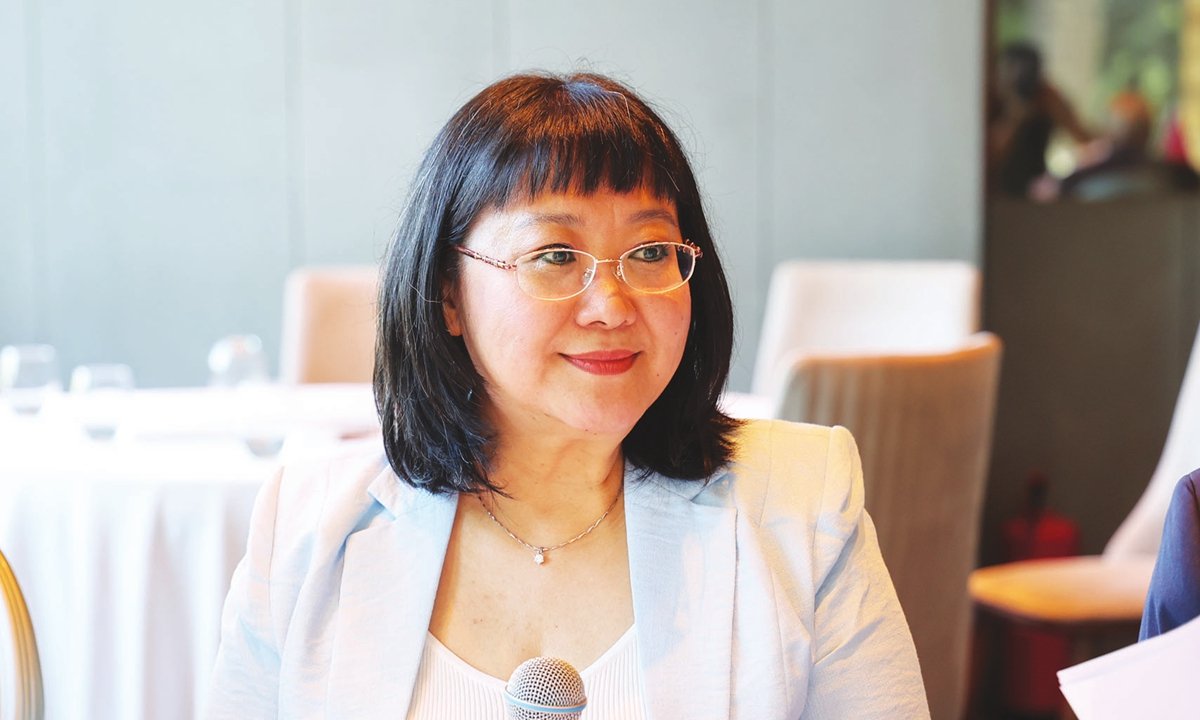The age-old saying in Chinese culture compares a masterpiece to an eternal flame, passed down across generations. This adage vividly resonates with the Luo family’s tale. Across three generations, they’ve played a pivotal role in enhancing cultural exchanges between China and Greece.
Luo Jinlin, an eminent 86-year-old director, has made significant contributions by producing Chinese renditions of timeless Greek classics like “Oedipus the King” and “Medea.” Carrying forward this legacy, his daughter, Luo Tong, felt an intrinsic pull towards Greece, influenced by her family’s deep-rooted tradition.
Having resided in Greece for over three decades, Luo Tong channeled her passion into propagating Chinese culture. Her initiatives led to the introduction of Chinese language courses at the University of Athens. Moreover, she established the InterChina Cultural Center, which became a focal point for teaching Chinese language and traditional arts in Greece.
Luo Tong delves into the parallels between traditional Chinese opera and ancient Greek drama, pointing out shared ritualistic origins and semblances in costumes during performances. “Understanding these cultural intersections and differences is essential for fostering a meaningful dialogue between both civilizations,” she remarked.
The family’s roots in this cultural exchange trace back to Luo Niansheng, who in 1933 became the first Chinese student at the American School of Classical Studies in Athens. His exposure led to the introduction of ancient Greek theatre and literary treasures like Aesop’s Fables to China. Inspired by his father’s endeavors, Luo Jinlin began adapting Greek plays and dramas for Chinese audiences.
In 1989, Luo Jinlin made waves by ingeniously using traditional Chinese opera forms to depict ancient Greek tragedies. This artistic venture earned him recognition both within China and on the global stage. His adaptations, such as Medea in the Hebei Bangzi Opera and Oresteia in the Pingju Opera, became widely celebrated.
Raised amidst such profound influences, Luo Tong’s gravitation towards Greece for her studies was a natural progression. After her academic pursuits, Luo Tong made the significant choice to remain in Greece. “At first, I was perplexed,” confessed Luo Jinlin. “But soon I realized she’s echoing her grandfather’s legacy – championing traditional Chinese arts in Greece.”
Luo Tong’s endeavors to bridge the cultural gap have been monumental. While teaching at the University of Athens, she spearheaded the introduction of Chinese language courses in 1992. Her brainchild, the InterChina Cultural Center, initiated with language instruction but soon expanded its horizons, encompassing kung fu, calligraphy, painting, and performance arts. This institution’s reputation grew, making it a beacon for cultural exchange in Greece.
Returning to China in 2018, Luo Tong joined the faculty at the Shanghai Theatre Academy. She also facilitated Greek drama performances in China, orchestrating collaborations with Greek directors and production teams. In one instance, she organized a bilingual performance featuring both Chinese and Greek languages, a pioneering effort that provided a unique experience for the audience.
Amidst these ventures, Luo Tong identified challenges in translating certain Greek words for stage performances. This led to her current project of retranslating Greek literary classics. “Language and interpretations evolve with time. It’s imperative to refresh these translations and incorporate recent research findings in ancient Greek drama,” Luo Tong emphasized.
Her vision extends to making Greek drama more accessible to the general Chinese populace, moving away from its elite niche. Through initiatives like script readings for common people, Luo Tong aspires to demystify the profound philosophical elements of Greek tragedies.
Concluding her thoughts, Luo Tong expressed, “Establishing cultural bridges requires sturdy pillars. I’ve laid one in Athens with our cultural center, and now, in Beijing, I aim to erect another. With firm pillars in place, countless individuals will traverse the bridge we’ve nurtured.”
READ MORE:
